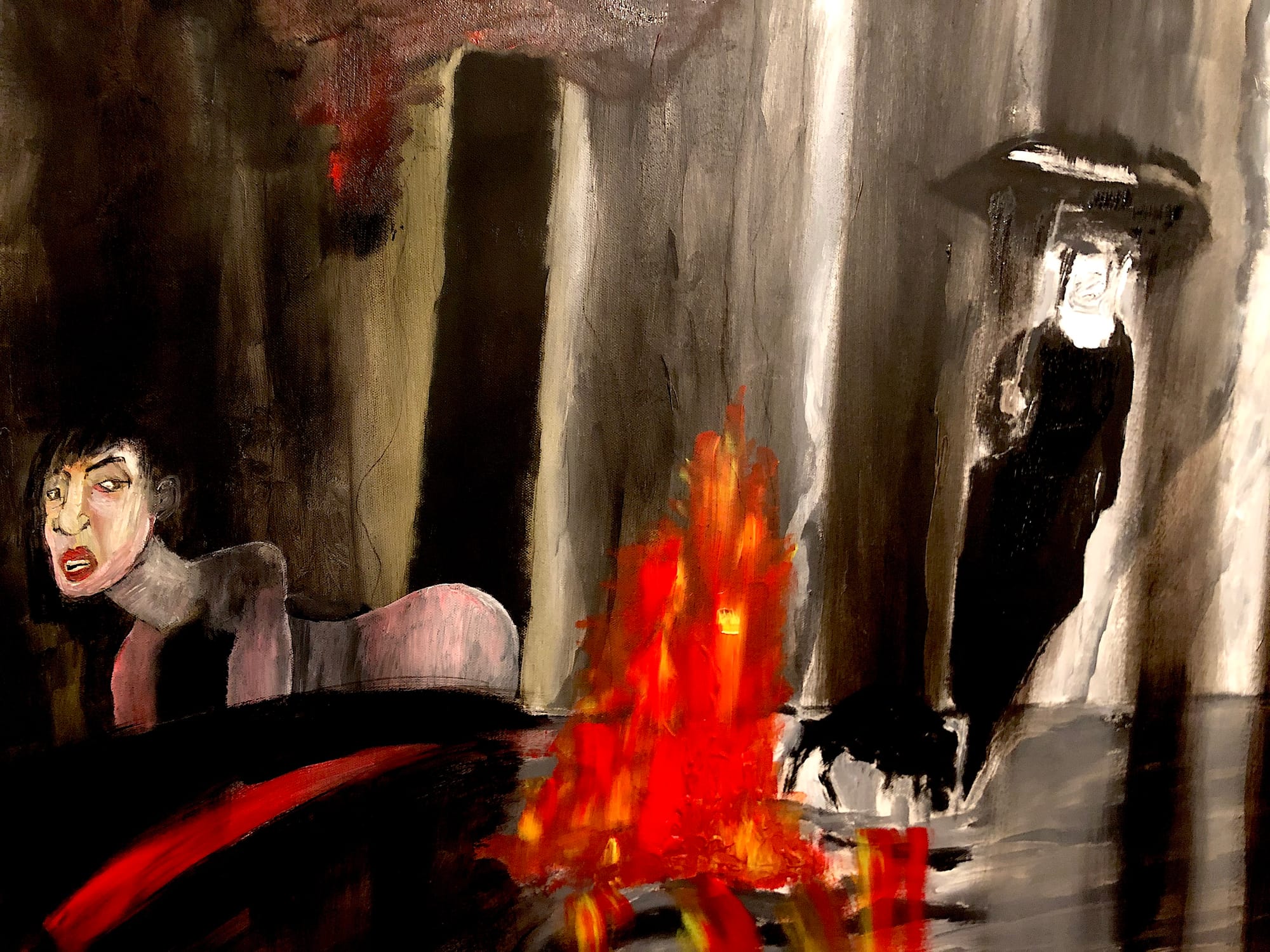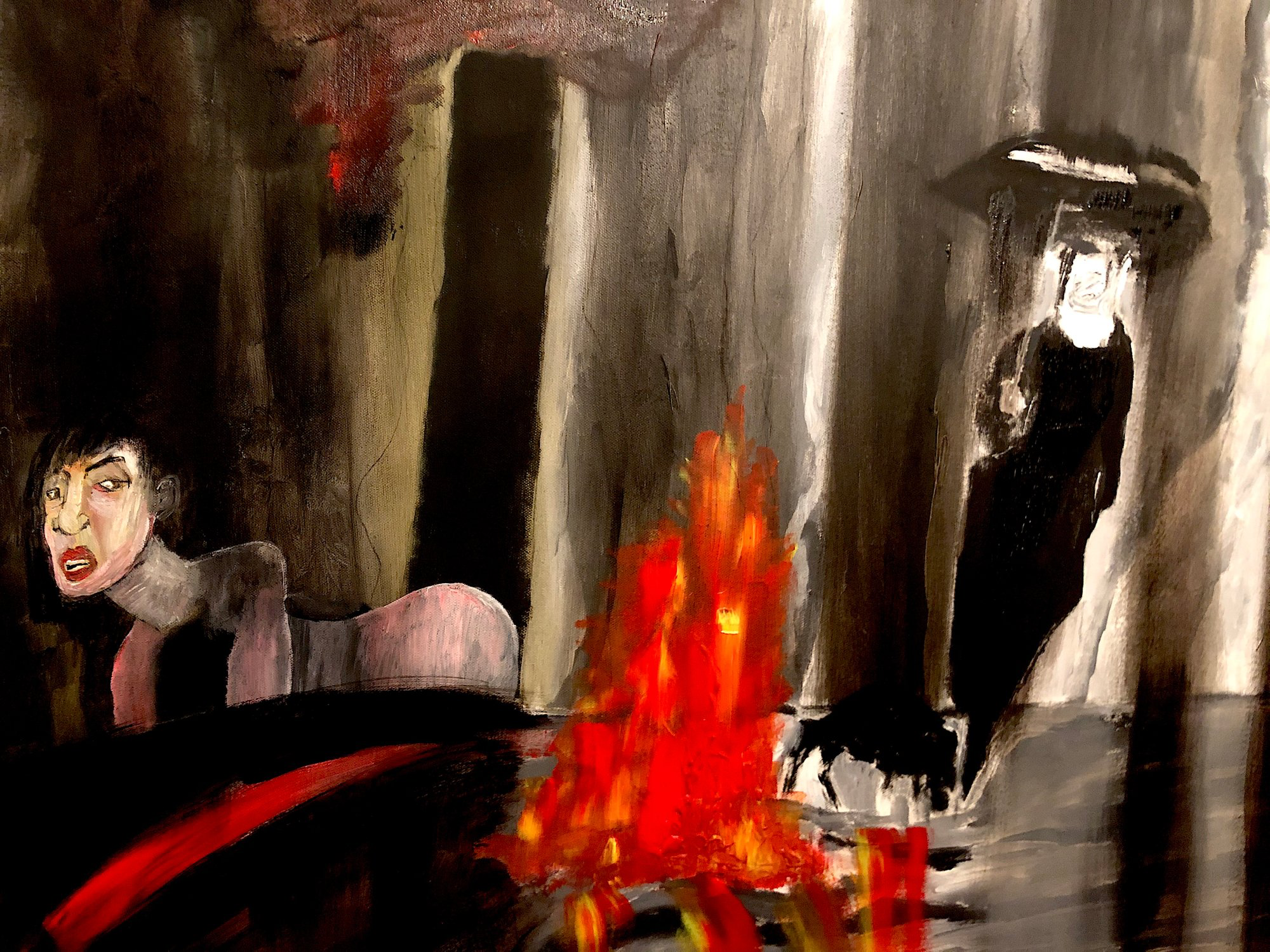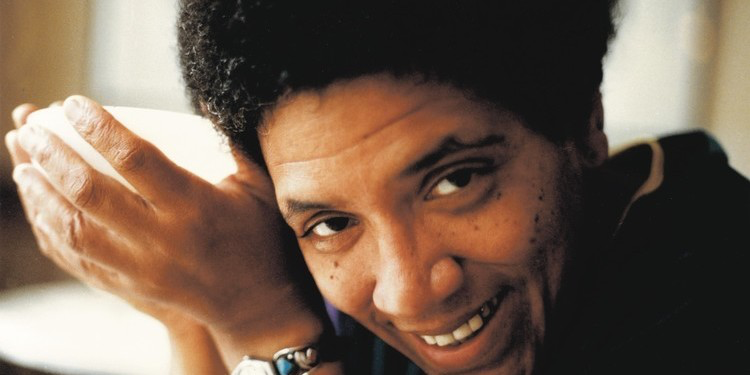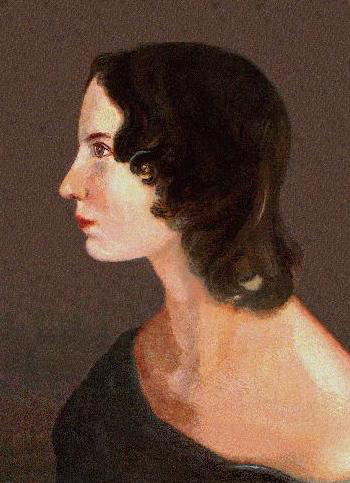Pandemic Conversations 5: Emily Bronte and Audre Lorde

It's raining and the wind howls. Few people are venturing out through this but by the Brunel viaduct near Bunny Park two women seem to be standing upon the constant edges of decision, crucial and alone like those of us who cannot indulge the passing dreams of choice and who therefore love in doorways, coming and going in the hours between dawns looking inward and outward at once before and after seeking a now that can breed futures like bread in children's mouths so their dreams will not reflect the death of ours. One looks like Emily Bronte and the other Audre Lorde. They speak through the darkening storm.

Audre Lord: Those of us who stand outside the circle of this society's definition of acceptable women; those of us who have been forged in the crucibles of difference - those of us who are poor, who are lesbians, who are black, who are older - know that survival is not an academic skill...For the master's tools will not dismantle the master's house. They will never allow us to bring about genuine change.
Emily Bronte: I wish I were a girl again, half-savage and hardy, and free. The thing that irks me most is this shattered prison, after all. I'm tired, tired of being enclosed here. I'm wearying to escape into that glorious world, and to be always there: not seeing it dimly through tears, and yearning for it through the walls of an aching heart, but really with it, and in it.
AL: Tell them about how you're never really a whole person if you remain silent, because there's always that one little piece inside you that wants to be spoken out, and if you keep ignoring it, it gets madder and madder and hotter and hotter, and if you don't speak it out one day it will just up and punch you in the mouth from the inside.
EB: It’s no company at all, when people know nothing and say nothing. I’ve dreamt in my life dreams that have stayed with me ever after, and changed my ideas: they’ve gone through and through me, like wine through water, and altered the colour of my mind.
AL: The erotic has often been misnamed by men and used against women. It has been made into the confused, the trivial, the psychotic, the plasticized sensation. For this reason, we have often turned away from the exploration and consideration of the erotic as a source of power and information, confusing it with its opposite, the pornographic. But pornography is a direct denial of the power of the erotic, for it represents the suppression of true feeling. Pornography emphasizes sensation without feeling.
EB: I'd be glad of a retaliation that wouldn't recoil on myself; but treachery and violence are spears pointed at both ends: they wound those who resort to them, worse than their enemies. I take so little interest in my daily life, that I hardly remember to eat and drink. I am seldom otherwise than happy while watching in the chamber of death... . I see a repose that neither earth nor hell can break, and I feel an assurance of the endless and shadowless hereafter--the Eternity they have entered--where life is boundless in its duration, and love in its sympathy, and joy in its fulness.
AL: The erotic is a measure between the beginnings of our sense of self and the chaos of our strongest feelings. It is an internal sense of satisfaction to which, once we have experienced it, we know we can aspire.
EB: The human heart is like india-rubber; a little swells it, but a great deal will not burst it. If "little more than nothing will disturb it, little less than all things will suffice" to break it. As in the outer members of our frame, there is a vital power inherent in itself that strengthens it against external violence. Every blow that shakes it will serve to harden it against a future stroke; as constant labour thickens the skin of the hand, and strengthens its muscles instead of wasting them away: so that a day of arduous toil, that might excoriate a lady's palm, would make no sensible impression on that of a hardy ploughman.
AL: Pain is important: how we evade it, how we succumb to it, how we deal with it, how we transcend it.
EB: I’ll walk, but not in old heroic traces, and not in paths of high morality, and not among the half-distinguished faces, the clouded forms of long-past history. I’ll walk where my own nature would be leading: it vexes me to choose another guide.
AL: Black and Third World people are expected to educate white people as to our humanity. Women are expected to educate men. Lesbians and gay men are expected to educate the heterosexual world. The oppressors maintain their position and evade their responsibility for their own actions. There is a constant drain of energy which might be better used in redefining ourselves and devising realistic scenarios for altering the present and constructing the future.
EB: It is strange how custom can mould our tastes and ideas: many could not imagine the existence of happiness in a life of such complete exile from the world.
AL: I want to live the rest of my life, however long or short, with as much sweetness as I can decently manage, loving all the people I love, and doing as much as I can of the work I still have to do. I am going to write fire until it comes out of my ears, my eyes, my noseholes--everywhere. Until it's every breath I breathe. I'm going to go out like a fucking meteor!
EB: O God! It is a long fight; I wish it were over! I am weary of the anguish increasing winters bear; weary to watch the spirit languish through years of dead despair. I cannot express it; but surely you and everybody have a notion that there is or should be an existence of yours beyond you. What were the use of my creation, if I were entirely contained here?
AL: I have a duty to speak the truth as I see it and share not just my triumphs, not just the things that felt good, but the pain, the intense, often unmitigated pain. It is important to share how I know survival is survival and not just a walk throught the rain.
EB: It's odd what a savage feeling I have to anything that seems afraid of me. Your cold blood cannot be worked into a fever: your veins are full of ice-water; but mine are boiling, and the sight of such chillness makes them dance.
AL: We have been raised to fear the yes within ourselves, our deepest cravings.
EB: Have no pity! I have no pity! The more the worms writhe, the more I yearn to crush out their entrails! It is a moral teething; and I grind with greater energy in proportion to the increase of pain.
AL: The distortion of relationship which says “I disagree with you, so I must destroy you” leaves us as Black people with basically uncreative victories, defeated in any common struggle. This jugular vein psychology is based on the fallacy that your assertion or affirmation of self is an attack upon my self—or that my defining myself will somehow prevent or retard your self-definition.
EB: Prejudices, it is well known, are most difficult to eradicate from the heart whose soil has never been loosened or fertilised by education: they grow there, firm as weeds among stones.
AL: I heard my old friend’s voice coming back to me through the dimness of thirty years: “I see you coming here trying to make sense where there is no sense. Try just living in it. Respond, alter, see what happens.” I thought of the African way of perceiving life, as experience to be lived rather than as problem to be solved.
EB: And then, yes, instead of lamenting past calamities we might all cheerfully set to work to remedy them; and the greater the difficulties, the harder our present privations, the greater should be our cheerfulness to endure the latter, and our vigour to contend against the former.
AL: You always learn from observing. You have to pick things up nonverbally because people will never tell you what you’re supposed to know. You have to get it for yourself: whatever it is that you need in order to survive. You become strong by doing the things you need to be strong for. This is the way genuine learning takes place.
EB: I certainly esteem myself a steady, reasonable kind of body not exactly from living among the hills and seeing one set of faces, and one series of actions, from year’s end to year’s end; but I have undergone sharp discipline, which has taught me wisdom; and then, I have read more than you would fancy.
AL: Militancy no longer means guns at high noon, if it ever did. It means actively working for change, sometimes in the absence of any surety that change is coming. It means doing the unromantic and tedious work necessary to forge meaningful coalitions, and it means recognizing which coalitions are possible and which coalitions are not. It means knowing that coalition, like unity, means the coming together of whole, self-actualized human beings, focused and believing, not fragmented automatons marching to a prescribed step. It means fighting despair.
EB: I have to remind myself to breathe— almost to remind my heart to beat! And it is like bending back a stiff spring: it is by compulsion that I do the slightest act not prompted by one thought; and by compulsion that I notice anything alive or dead, which is not associated with one universal idea.
AL: As they become known to and accepted by us, our feelings and the honest exploration of them become sanctuaries and spawning grounds for the most radical and daring of ideas. They become a safe-house for that difference so necessary to change and the conceptualization of any meaningful action. Right now, I could name at least ten ideas I would have found intolerable or incomprehensible and frightening, except as they ame after dreams and poems. This is not idle fantasy, but a disciplined attention to the true meaning of "it feels right to me." We can train ourselves to respect our feelings and to transpose them into a language so they can be shared. And where that language does not yet exist, it is our poetry which helps to fashion it. Poetry is not only dream and vision; it is the skeleton architecture of our lives. It lays the foundations for a future of change, a bridge across our fears of what has never been before.
EB: You know so well that human nature is human nature everywhere, whether under tile or thatch, and that in every specimen of human nature that breathes, vice and virtue are ever found blended, in smaller or greater proportions, and that the proportion is not determined by station. I have seen villains who were rich, and I have seen villains who were poor, and I have seen villains who were neither rich nor poor.
AL: But we can practice being gentle with ourselves by being gentle with each other. We can practice being gentle with each other by being gentle with that piece of ourselves that is hardest to hold, by giving more to the brave bruised girlchild within each of us, by expecting a little less from her gargantuan efforts to excel. We can love her in the light as well as in the darkness, quiet her frenzy toward perfection and encourage her attentions toward fulfillment. Maybe then we will come to appreciate more how much she has taught us, and how much she is doing to keep this world revolving toward some livable future.
EB: I see a repose that neither earth nor hell can break, and I feel an assurance of the endless and shadowless hereafter—the Eternity they have entered—where life is boundless in its duration, and love in its sympathy, and joy in its fulness. The earth that wakes one human heart to feeling can centre both the worlds of Heaven and Hell.
AL: The oppression of women knows no ethnic nor racial boundaries, true, but that does not mean it is identical within those boundaries. Nor do the reservoirs of our ancient power know these boundaries. To deal with one without even alluding to the other is to distort our commonality as well as our difference.For then beyond sisterhood is still racism.
EB: I’ve done no injustice, and I repent of nothing. I’m too happy; and yet I’m not happy enough. My soul’s bliss kills my body, but does not satisfy itself. I was only going to say that Heaven did not seem to be my home; and I broke my heart with weeping to come back to earth; and the angels were so angry that they flung me out, into here; where I woke sobbing for joy.
AL: Life is very short and what we have to do must be done in the now.
EB: I’ll not do anything, though you should swear your tongue out, except what I please!
AL: What are the words you do not yet have? What do you need to say? What are the tyrannies you swallow day by day and attempt to make your own, until you will sicken and die of them, still in silence? Perhaps for you, I am the face of one of your fears. Because I am woman, because I am Black, because I am lesbian, because I am myself — a Black woman warrior poet doing my work — come to ask you, are you doing yours?
EB: If you flatter yourself that I don't perceive it, you are a fool; and if you think I can be consoled by sweet words, you are an idiot; and if you fancy I'll suffer unrevenged, I'll convince you of the contrary. Remember you don't forget resolutions formed in the hour of fear. I am the only being whose doom no tongue would ask, no eye would mourn; I never caused a thought of gloom, a smile of joy, since I was born.
AL: When we admit and deal with difference; when we deal with the deep bitterness; when we deal with the horror of even our different nightmares; when we turn them and look at them, it’s like looking at death: hard but possible. If you look at it directly without embracing it, then there is much less that you can ever be made to fear.
EB: Wish and learn to smooth away the surly wrinkles, to raise your lids frankly, and change the fiends to confident, innocent angels, suspecting and doubting nothing, and always seeing friends where they are not sure of foes-- Don't get the expression of a vicious cur that appears to know the kicks it gets are its desert, and yet, hates all the world, as well as the kicker, for what it suffers.
AL: Men avoid women's observations by accusing us of being too "visceral".
EB: My soul's bliss kills my body, but does not satisfy itself.
At this they part, walking not in old heroic traces, and not in paths of high morality, and not among the half-distinguished faces nor the clouded forms of long-past history but rather where their own nature would be leading, vexed to choose another guide where the grey flocks in ferny glens are feeding and where the wild wind blows rain down on the steep side of their local park and themselves. It is a later afternoon and the pandemic had brought the unreal world too strangely near.

